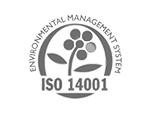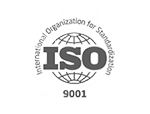Facing the “build or buy” dilemma for your transportation needs? You’re not alone. Every company that ships products regularly wrestles with whether to invest in their own trucks or partner with logistics providers.
Making the transportation decision: Own fleet vs outsourcing
Choosing between investing in your own transport equipment and outsourcing your logistics needs represents one of the most important strategic decisions for any business with regular shipping requirements. This decision impacts not just your bottom line but also your operational flexibility, service quality, and long-term supply chain optimization.
The transportation landscape has evolved significantly in recent years, with both options offering distinct advantages. Before making this decision, you’ll need to carefully analyze your business requirements, financial capabilities, and long-term growth plans.
This choice is particularly significant for companies handling specialized materials that require custom equipment or specific handling expertise. Understanding the full implications of each approach will help you develop a transportation strategy that supports your business objectives most effectively.
What are the advantages of owning your transport equipment?
Owning your transport equipment gives you complete control over your logistics operations, allowing you to manage every aspect of the transportation process according to your specific requirements. This control extends to scheduling, routes, delivery timing, and handling procedures – all critical factors for businesses with specialized transportation needs.
With your own fleet, you can:
- Design and customize vehicles specifically for your cargo requirements, especially valuable for bulk material transport with special handling needs
- Build your brand presence through vehicle branding, turning your transport fleet into mobile advertisements
- Develop specialized expertise within your team for handling your specific products
- Potentially realize long-term cost savings once the initial investment is amortized
- Respond more quickly to urgent customer requirements without dependency on third-party availability
For companies with consistent, predictable shipping volumes, the long-term financial benefits of fleet ownership can be substantial. However, these advantages must be weighed against the significant upfront investment and ongoing maintenance responsibilities.
What benefits does outsourcing transportation provide?
Outsourcing transportation eliminates the need for significant capital investment in vehicles and equipment, freeing up your financial resources for core business activities. This approach transforms transportation from a fixed cost to a variable expense that scales with your actual needs.
Key advantages of outsourcing include:
- Access to specialized equipment and expertise without the investment burden
- Flexible capacity that can adjust to seasonal or cyclical business fluctuations
- No responsibility for vehicle maintenance, compliance, or driver management
- Reduced administrative burden related to transport regulations and documentation
- Ability to leverage the logistics provider’s established network and routes
For businesses with varying shipping volumes or those requiring specialized equipment only occasionally, outsourcing often provides the most cost-effective solution. This approach also minimizes your exposure to transportation-related risks and regulatory changes.
How do you calculate the true cost of transportation ownership?
Calculating the true cost of transportation ownership requires a comprehensive analysis that goes far beyond the initial purchase price of vehicles. A thorough transportation costs assessment must account for both direct expenses and hidden costs that emerge throughout the ownership lifecycle.
Your calculation should include:
- Initial vehicle acquisition costs (purchase or lease)
- Depreciation over expected useful life
- Maintenance and repair expenses (preventive and reactive)
- Fuel costs based on projected usage patterns
- Insurance, licensing, and regulatory compliance fees
- Driver wages, benefits, training, and certification
- Administrative overhead for fleet management
- Opportunity cost of capital that could be invested elsewhere
Many businesses underestimate these costs, particularly the administrative burden and regulatory compliance requirements. For specialized transport operations like bulk powder hauling, equipment costs can be significantly higher due to the specialized nature of the vehicles required.
When is the right time to transition from outsourcing to ownership?
The ideal time to transition from outsourced transportation to fleet ownership typically arrives when your shipping volume reaches a consistent threshold that makes ownership economically viable. This inflection point varies by industry and business model, but several clear indicators can signal you’re ready for this strategic shift.
Consider transitioning to ownership when:
- Your annual transportation spending consistently exceeds the amortized cost of owned equipment
- Your routes and schedules have become stable and predictable
- You require specialized equipment that’s difficult to source from service providers
- You have the financial capacity to absorb the upfront investment
- Your business has the management bandwidth to handle fleet management responsibilities
Many companies find that a gradual transition works best, starting with ownership of a few vehicles while maintaining some outsourced capacity. This hybrid approach allows you to develop internal expertise while managing risk.
Key takeaways for your transportation strategy
Developing an effective transportation strategy requires carefully balancing control, cost, flexibility, and your specific business requirements. Rather than viewing this as a binary choice, consider how a thoughtfully designed hybrid approach might best serve your needs through different growth stages and market conditions.
Remember these essential considerations:
- Regular review of your transportation strategy is vital as business requirements evolve
- Specialized cargo often requires specialized solutions – whether owned or outsourced
- The true cost comparison must account for all direct and indirect expenses
- Your decision should align with both current needs and future growth plans
At Powder-Trans, we understand the complexities of transportation decision making, particularly for businesses handling powdered and granular materials. We offer flexible solutions for companies that aren’t ready to invest in specialized transport equipment but still need reliable, expert handling of their products. For more information about our specialized transportation services, please contact our logistics experts.






